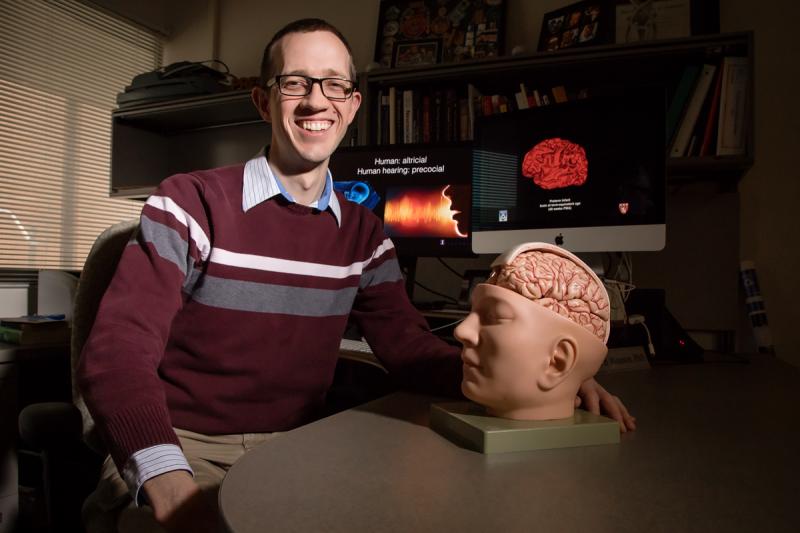
Grant to help researcher study difference in hearing for preterm babies
A researcher in the Department of Speech and Hearing Science in the College of Applied Health Sciences has received funding to determine the difference in language exposures for preterm infants relative to what they would be hearing if they were still in the womb.
SHS assistant professor Brian Monson earned a $300,000 grant from the National Institute of Deafness and Communication Disorders for his project entitled, “Auditory experience during the prenatal and perinatal period.”
Monson said the aims of the project include comparing typical fetal auditory exposures in the womb to preterm infant auditory exposures in the neonatal intensive care unit, and assessing the effect of these exposures on auditory neurodevelopment. The study, he said, is being conducted in collaboration with Carle Hospital, with the long-term goal of optimizing auditory exposures for preterm infants to foster healthy brain development in the neonatal intensive care unit.
“We also hope to see whether these differences in exposures have an effect on later brain and language development,” Monson said.
The grant from the NIDCD—which is part of the National Institutes of Health—helps extend upon research Monson undertook with funding from a Center for Health, Aging & Disability (CHAD) pilot grant.
Monson said the plan is to enroll 100 preterm infants and 100 pregnant women who carry to full term, with recruiting done locally of pregnant women from the Champaign-Urbana community and NICU patients from Carle Hospital. He said data collection had begun and that he had about 30 subjects in each group.
Once differences between exposures in the NICU vs. the womb are established, Monson said, the next step would be to develop an intervention that enhances NICU auditory exposures (e.g., by increasing language exposure) and assess the effects of this intervention with a clinical trial. “We also plan to continue following up with the current study’s babies later in childhood,” he said.
“One out of every 10 babies born in Illinois is born premature, which is similar to the national rate,” Monson said. “Because of this, we feel this project is critically important as it will lead to improved health outcomes for our community’s tiniest human beings.”
